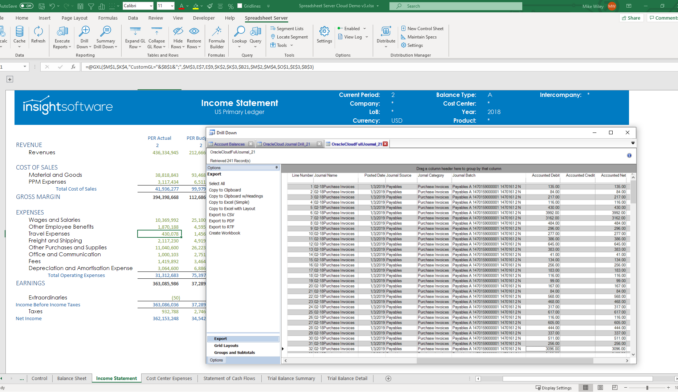Q&A Tuesday with Luis Lomanov: Finding the Right Approach to Tech-Driven Accounting

Luis Lomanov is a Managing Partner at Upward Insights, an insourced accounting firm, as well as an author and CFO thought leader. He previously worked in financial reporting in private equity and now works closely with companies across industries to refine processes, produce insights, and elevate performance. We spoke with Luis about the growing importance of technology in today’s accounting departments and how they can (carefully and cautiously) become more tech-driven.
You’ve worn a lot of different hats throughout your career. How have you seen the role of the CFO evolve over that time?
Originally, the CFO was the guy who made sure that financial statements were provided on time, but now that’s just a small portion of a CFO’s responsibilities. Their job is really trying to understand and predict the financial future of the organization and prepare for it. I think this is part of a broader trend in the workforce of people transitioning from being generalists only to specialists with generalist’s abilities—and CFOs are exactly that. We are specialists in accounting and finance who are now expected to be generalists in things like tech systems, processes, HR, or even legal.
Related to that, what role does tech play in the present and future of finance?
Tech is huge and here’s why: We simply can’t do what we need to do without it. Imagine a small company doing 10 million bucks a year. They’re trying to grow, they’re trying to do X, Y, and Z, but they’re barely getting data fast enough to make plans for the future. The owners and founders want to prepare in advance, but they just don’t have the infrastructure. Technology solves all that. The only way to get the insights a company needs is to have tech in place to do the work.
Is tech the whole solution?
Finance needs people, processes, and systems. The last two get confused a lot, but systems are tools and processes are steps and procedures that people perform using tools. All three are important and complementary. For instance, we hear people worrying about AI coming in and taking accounting jobs, but I can’t wait for the day when tech can handle more of my routine work and free me up to focus on more interesting things. So as I said, tech will be huge, and it will be up to companies to keep pace and adapt or else risk falling behind.
How can companies determine whether they need new tech instead of more people or different processes?
It’s all a function of time. In the area of business intelligence, we’re all trying to evaluate what it costs to have the level of intelligence we need and want. If you do the math, the most expensive investment is time. If you’re using a lot of time extracting intelligence, you’re spending more than you would on software doing the same work. When you invest in software to take some of the workloads of a bookkeeper or analyst, you also create opportunity costs because those people can spend their time on something more valuable. Instead of preparing a report, for example, they could be analyzing it. So when I evaluate companies, I always try to identify where they’re wasting time and whether software could save it.
Do you have any advice on selecting technology that can save time and implementing it efficiently?
My advice is pretty simple. First, you have to do an eval to determine where software is needed. Second, you need to seek out software with three key criteria: cost-effectiveness, efficiency, and scalability. Software needs to achieve all three. In some cases, you can accept two, but good software never checks just one of these boxes. Take the production of financial statements. If a company needs help in this area (which a lot do) and it goes looking for software, the software needs to save the company time and money and be useful 5-10 years down the road.
Most companies want to make progress toward digital transformation right now. What should they all be doing?
Much like choosing software, digital transformation starts with an evaluation of people, processes, and systems. Technology falls under the category of systems, and there are a lot of them, from AP processing to liability management. The answer isn’t to just add as many tech tools as possible. I’ve observed tools in the fintech space designed without a clear understanding of the end-user, and they don’t work holistically as a result. Digital transformation is obviously a lot about systems, but companies must also consider their impact on people and processes as well.
If you had to identify one resource that CFOs and accounting departments need right now, what would it be?
In my opinion, the most valuable resource inside any organization is people. When you have highly trained people who understand your workflows, culture, and goals, that’s an immensely powerful resource in the knowledge economy in which we now operate. We don’t produce widgets; we produce ideas, and each of those comes from someone’s mind. Systems and processes make those ideas more informed and more accessible, but they ultimately come from the CFO or the accountants—the most important resource.
Want to learn more about choosing the right tools to help your people succeed? Download our Whitepaper: 5 Things Not to Do When Choosing a Financial Reporting Tool.






